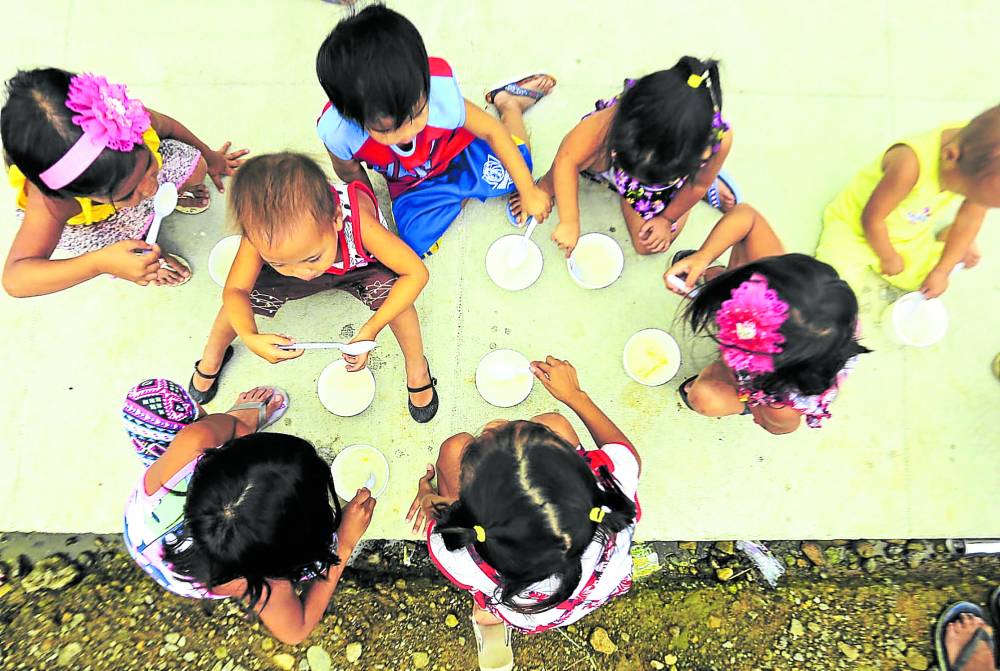PH schoolkids feeding program must keep going–USDA

INQUIRER FILE PHOTO
With over a million undernourished children in the Philippines, it is important that the government sustain its school-based feeding program (SBFP) so that it can provide access to affordable and healthy food for learners, the United States Department of Agriculture (USDA) said.
“Without interventions, millions of schoolchildren would continue to face the risk of undernutrition (or worse, malnutrition) and likely suffer with poor school performance and low adult productivity,” the USDA said in a report. The agency also said participating in the SBFP can support the agriculture sector, while strengthening and diversifying food systems.
Malnutrition remains a major concern in the country, with 13.2 percent of the 12.7 million school-age children either stunted (when the height is low for a child’s age) or wasted (weight is low for the height), based on the 2019 Nutritional Assessment, Enhanced Basic Education Information System.
Formerly known as the Breakfast Feeding Program, the SBFP was launched by the Department of Education (DepEd) on Sept. 8, 2021, with a budget P6.4 billion, to feed undernourished students in public schools for the school year 2021-2022.
For this year, the goal is to address the “short-term hunger syndrome” among public elementary pupils by providing nutritious food products and pasteurized or sterilized milk.
Article continues after this advertisementThe target is to feed 3.1 million kids in more than 34,000 public schools nationwide.
Article continues after this advertisementRepublic Act No. 11037, also known as the Masustansyang Pagkain para sa Batang Pilipino Act, paved the way for the national feeding program. It outlined a five-year plan to fully implement the SBFP.
Local gov’t support
The Philippine Development Plan 2023-2028 included the SBFP in the implementation of its strategy framework to improve education and lifelong learning.
The program, for which DepEd has partnered with various civic or private organizations, basically seeks to encourage enrollment and improve classroom attendance” among the beneficiaries.
The USDA noted that the proposed budget for 2023 is P5.7 billion covering 1.6 million students nationwide, higher than the P3.3 billion a year ago.
The budget for 2022 and 2023, however, was lower than the P6.4 billion earmarked in 2021 since the program funding was shifted to local government units (LGUs) following the Mandanas ruling that authorized the full transfer or devolution of the delivery of basic services to LGUs.
“Funding support from the LGUs is necessary to widen the implementation of SBFP in the various localities,” the USDA said.Milk needs
For milk alone, the target allocation is P2.1 billion, with supply mapping to be conducted in April to identify sources and allocate the budget.
In the previous year, the local dairy industry supplied 92 percent of the program’s milk requirement, equivalent to P1.04 billion shared by the National Dairy Authority (NDA) and the Philippine Carabao Center (PCC).
The NDA provided about 5 million liters of cow milk while the PCC gave 4.5 million liters of toned carabao milk. The remaining 5 percent was augmented by imported commercial milk.